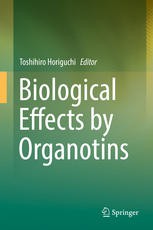abstract
The use of tributyltin (TBT) and, to a lesser extent, triphenyltin (TPT) as biocides in antifouling paint formulations during the last decades of the twentieth century was responsible for the global contamination of the coastal and offshore areas of the European aquatic environment. This widespread contamination was responsible for extensive deleterious effects in nontarget organisms particularly in gastropods, which, as a consequence of TBT exposure, developed imposex in a dose-dependent manner. Over the last decades, more than 20 gastropod species registering the occurrence of imposex were used by European researchers to ascertain the degree of TBT pollution in the European coastal and marine environment. In this chapter, we will evaluate the status of organotin (OT) contamination in European countries, using imposex in gastropods as a surrogate. The temporal trends uncovered are evaluated under the light of the 2003 European ban (Directive 2002/62/EC and Regulation 782/2003) and the AFS Convention (entered into force in 2008). The reduction of TBT pollution is addressed under the same light. Overall, we conclude that significant reductions in imposex levels started to emerge after the European ban (2003), though those reductions were more pronounced from 2008 onward. The most recent surveys disclose that the recovery of the ecosystems from the “TBT nightmare” is ongoing.
authors
Sousa ACA, Pastorinho MR



